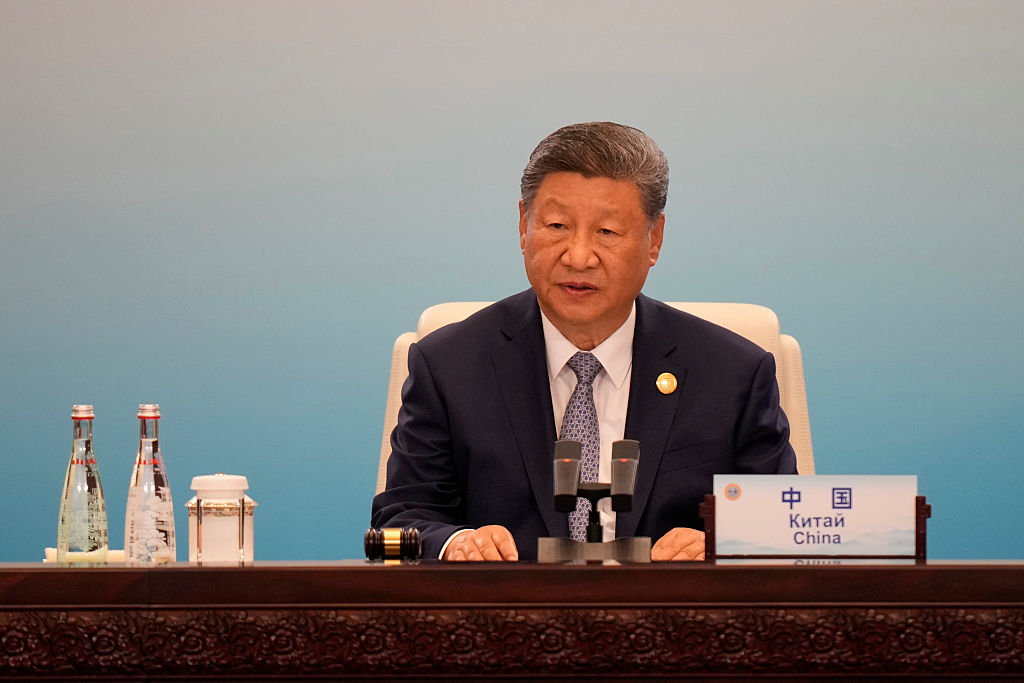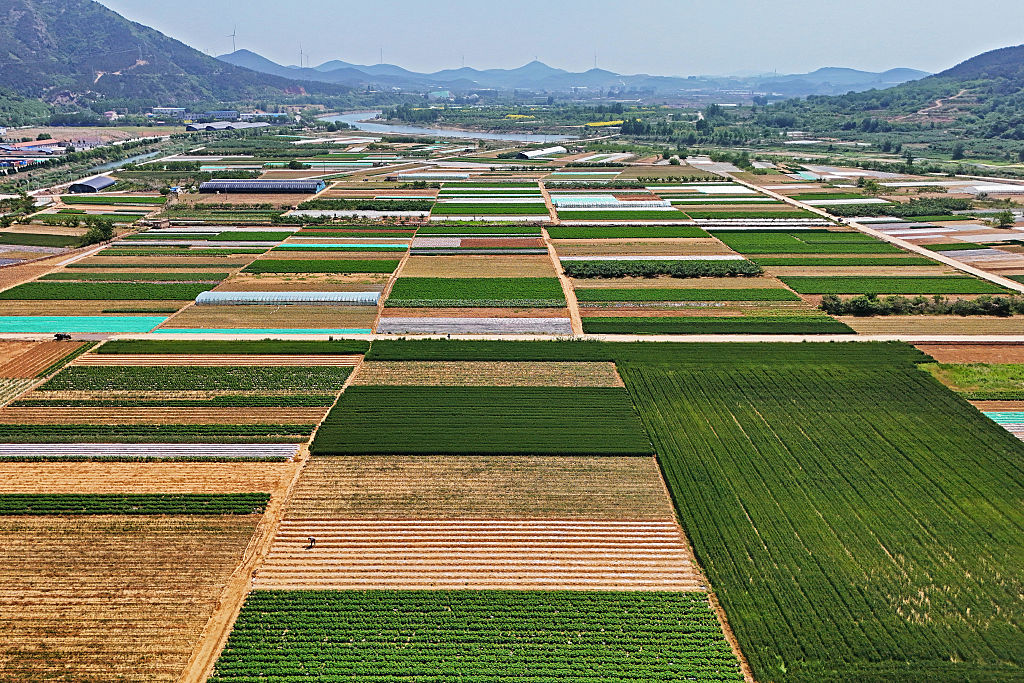China will celebrate the 80th anniversary of the end of the “war of resistance against Japanese aggression” (i.e. what we call VJ day) tomorrow. Given that Japan’s invasion of China started some four years earlier than Japan’s attack on Pearl Harbour in 1941, and cost an estimated 20 to 30 million Chinese lives, this week’s military parade is a major milestone. As the People’s Liberation Army Daily newspaper has explained:
“One of the highlights is a grand military parade at Beijing’s Tian’anmen Square themed on commemorating the great victory and promoting the enduring spirit of the War of Resistance.”
Not surprisingly, China is pushing the boat out in terms of its invitation list. It includes 16 presidents and ten other world leaders. Apart from the president of Serbia, Aleksander Vucic, and the prime minister of Slovakia, Robert Fico, European leaders will be notable for their absence.
Most importantly, the attendance of Vladimir Putin and Kim Jong Un as guests of honor is being heralded as a diplomatic coup for Xi Jinping by much of the West’s media. Thus, the BBC, reflecting its dislike of Donald Trump, has gleefully headlined one of its pieces “Xi shows Trump who holds the cards as he sets up meeting with Kim and Putin.”
But is it a triumph? Or are Putin and Kim coming to the party to find out if Xi is still running China? Since July this year there have been two conflicting narratives about what is going on in the opaque world of Chinese politics.
One narrative, largely proposed by new media, notably expat Chinese watchers and academics hostile to China, who rely on discretely relayed inside information, suggests that Xi is now just a figurehead; he is in power but not in office. The other narrative, largely supported by Chinese and western legacy media, reports that nothing has changed; for them, Xi is still the all-powerful authoritarian leader who broke the mould by organizing an unprecedented third five-year term as general secretary of the Chinese Communist party (CCP). Britain’s Economist magazine has recently opined that “there is no immediate threat to Mr. Xi’s leadership.”
The “Xi has lost power” narrative proposed by the new media world is as follows. At or shortly after the 3rd CCP plenum in July 2024, Xi Jinping, overweight and reputedly a heavy drinker of Kweichow Moutai – the most expensive brand of baiju, a hard liquor distilled from sorghum and wheat – reportedly had a health scare and was taken to hospital. These reports have not been confirmed. But video footage of Xi’s recent trip to Tibet suggests that he is not a healthy man. His wobbling gait was painful to watch.
In his absence, Xi’s enemies pounced. The coup is said to have been led by the Central Military Commission (CMC) vice chairman Zhang Youxia. This highly regarded military leader, a princeling like Xi, and a rare veteran of military action in the China-Vietnam War, had provided the military backing that underwrote Xi’s taking of a third term of office. Subsequently, their relationship faltered. Seemingly, Zhang had argued with Xi about the advisability of a high-risk military attempt to take Taiwan.
Xi, who, from his public utterances, seemed to see the re-taking of Taiwan as the fulfillment of his legacy to “restore the nation,” “helicoptered” Fujian clique ally General He Weidong into the co-vice chairmanship of the CMC. Zhang found himself surrounded by Xi’s appointees.
One narrative suggests that Xi is now just a figurehead; he is in power but not in office
But now, an isolated Zhang is said to have taken his chance to save his own skin by launching a coup against Xi’s loyalists in the military. Admiral Miao Hua, another member of Xi’s Fujian clique, was suspended in November 2024 and removed from the CMC in June. Even more dramatically, in March, He Weidong disappeared. Strangely, neither of these CMC members seems to have been replaced.
Over the last year, dozens of high-ranking officers have been dismissed or have disappeared, mainly on grounds of corruption. Albeit an endemic problem in the People’s Liberation Army (PLA) it seems likely that the charges of corruption have been a cover for a purge of Xi’s military allies. Most notable has been the sacking of the generals who led the Rocket Force, which was particularly close to Xi.
The Chinese leader’s high-profile wife, Peng Liyuan, has also largely disappeared from public view. She is a famous Chinese folksinger whom Xi incongruously promoted to the rank of major general and to a key role in the CMC’s opaque cadre selection committee. General Zhang Youxia was reportedly furious that promotions and appointments in the army were being made by a celebrity singer. As for Xi, he has not attended a CMC meeting for a year.
Zhang’s alleged move has allowed Xi’s political enemies to come out of the shadows. Hu Jintao, Xi’s predecessor as general secretary, who was shockingly manhandled out of the 20th CCP congress on Xi’s orders, has reemerged as a leading figure in the cabal seeking to overthrow the General Secretary. His liberal Communist Youth League faction is now in the ascendancy.
In addition, the “princelings,” the name given to the Red aristocracy that emerged from the early political and military leaders of the CCP, have come out in force to criticize Xi’s building of a Mao-style personality cult. These include Deng Pufang, son of Deng Xiaoping, the supreme leader who banned Mao’s personality cult. Deng Pufang’s back was broken when he was thrown off a roof by red guards during Mao’s Cultural Revolution. No wonder that he and many other princelings who were banished to the countryside during the cultural revolution baulked at Xi’s return to Maoist authoritarianism.
Though Jiang Zemin, former general secretary between 1989 and 2002, died in November 2022, his Shanghai faction continues to have a presence. They are thought to be jockeying for position in case of a restructuring of the Politburo’s current all-powerful seven-man standing committee.
The factions opposed to Xi are said to have agreed on a few policies. Xi’s Mao-style personality cult must not be repeated; the restoration of a maximum of two five-year terms for a general secretary has been agreed; the CCP will return to Deng Xiaoping’s liberal reform path; and Xi’s foreign policy, which has generated a great deal of pushback in both Asia and the west, should become less aggressive.
Supposedly not yet decided by the opposition factions is whether Xi Jinping should be replaced immediately or at the 20th CCP congress in 2027. It seems likely that General Zhang would like a rapid resolution of the leadership issue. As the leader of what has, in essence, been a military coup, he knows that his head is on the line. A Xi comeback could end his life.
By contrast Hu Jintao, for the sake of party stability and public face, would reputedly like Xi to continue as a “figurehead only” leader until the next congress. The situation is complicated by the fact that potential Xi replacements are thought to be reluctant to become CCP general secretary unless they are also appointed to Chairmanship of the CMC.
Historically, this is not surprising. The only two general secretaries who did not hold the chairmanship of the CMC were sacked from office; Hu Yaobang in 1987 and Zhao Ziyang in 1989. Both these leaders were removed by Deng Xiaoping, who never held the post of CCP general secretary; Deng’s role as China’s supreme leader rested solely on his chairmanship of the CMC from 1981 to 1989 – a clear indication that, in China, the ultimate ring of power is held by the army.
In July, it was noted that at the dinner held to celebrate the 98th anniversary of the founding of the Chinese People’s Liberation Army, several of Xi’s enemies were seated on top tables. The biggest surprise was the reappearance of General Liu Yuan. After disputes with Xi Jinping, Liu made a dramatic resignation from the PLA in 2015.
The Chinese leader’s high-profile wife, Peng Liyuan, has also largely disappeared from public view
Liu is the son of Liu Shaoqi, who succeeded Mao as chairman of the People’s Republic of China. Liu Shaoqi was subsequently arrested and killed during the Cultural Revolution. His crime was to favor liberalization of the Chinese economy. Indeed, during the Cultural Revolution, Mao referred to Liu Shaoqi and Deng Xiaoping as the “number one and number two capitalist roaders.” The reemergence of General Liu Yuan after a 10-year interval seems to confirm the dramatic political shift back to the ‘capitalist roader’ path forged by Deng Xiaoping.
Given the parallel but opposing narratives of current Chinese politics, China watchers will be fixated on what happens at tomorrow’s military parade. Protocols and placements at the parades and dinners will be analyzed in detail. Some have even suggested the possibility of a coup.
This seems highly unlikely. Instead, China watchers should wait for the 4th plenum of the 20th congress. It was announced on July 30 that this will take place in October. If there are major changes in the Chinese leadership before the 21st CCP congress in 2027, they are most likely to take place at a plenum session of which there are usually seven during a five-year National Congress term.
The most talked-about successors to Xi are Hu Chunhua and Wang Yang. Hu, an acolyte of Hu Jintao and his Communist Youth League faction, is a liberal who was surprisingly pushed out of the Politburo’s Standing Committee at the 20th national congress in 2022. Wang Yang, another liberal and a former Standing Committee member, was similarly discarded when Xi embarked on his third term of office.
These are interesting times in China; perhaps President Trump should have accepted the Chinese invitation to attend the September 3 celebrations after all – if only to get a peek inside the secret world of Chinese politics.


























Leave a Reply